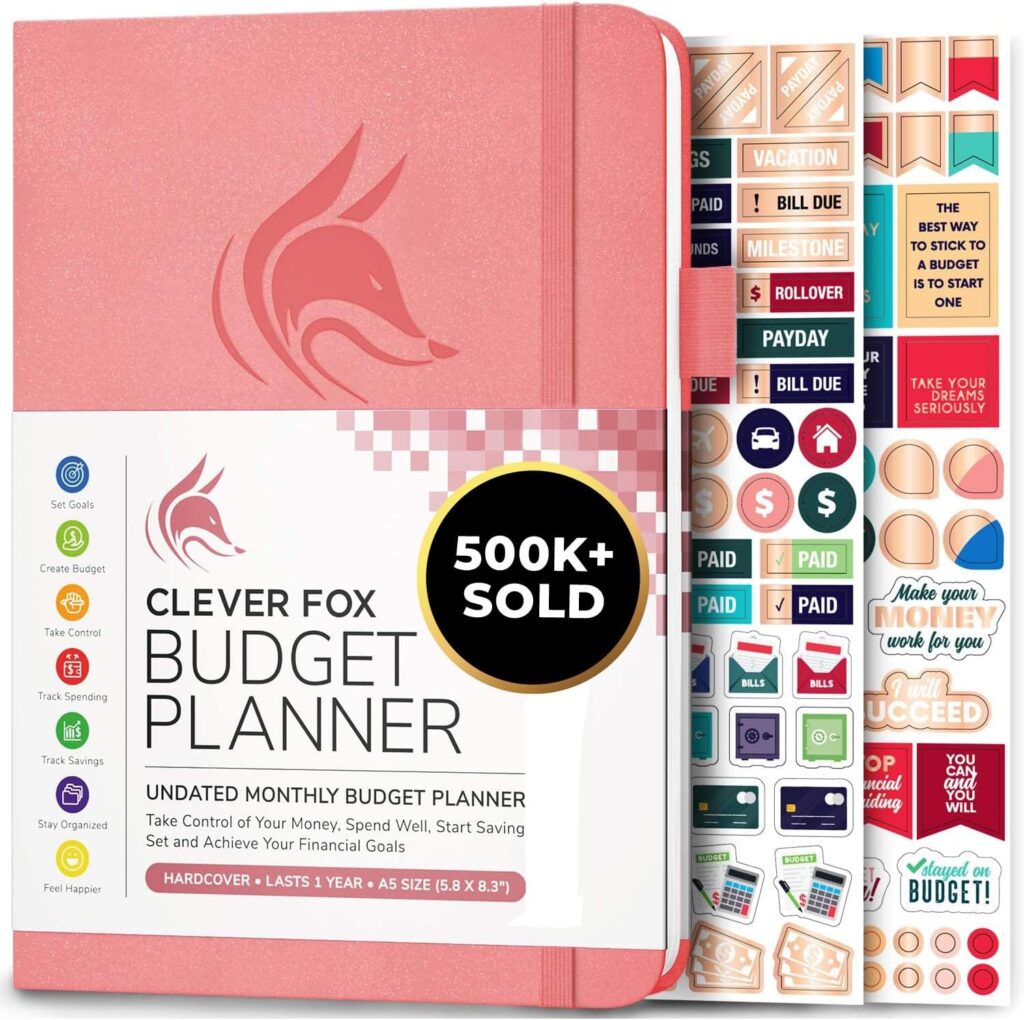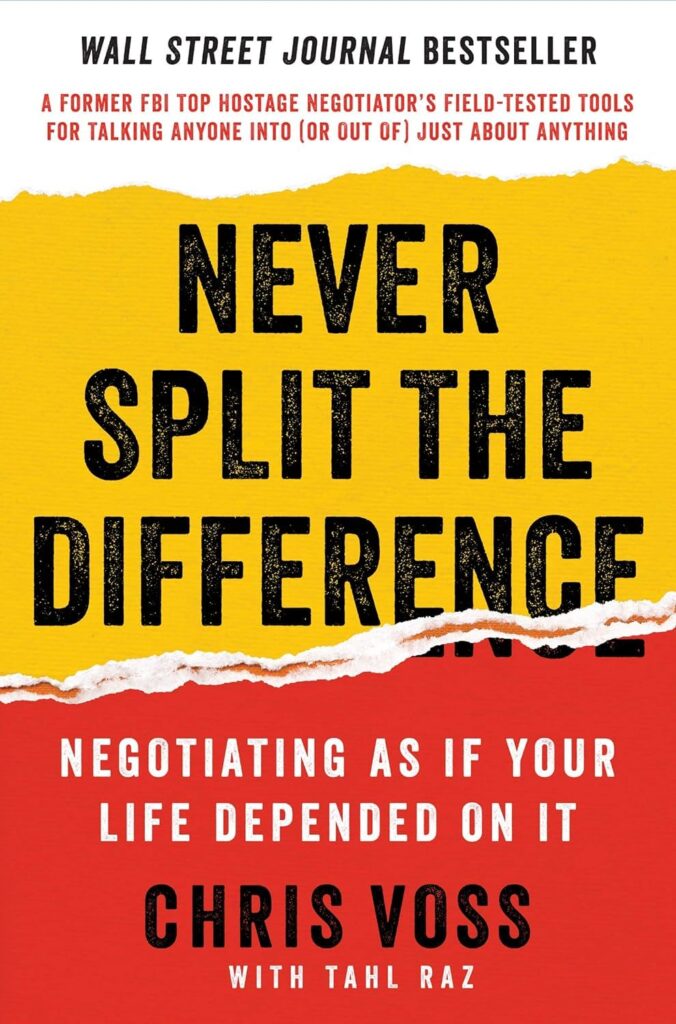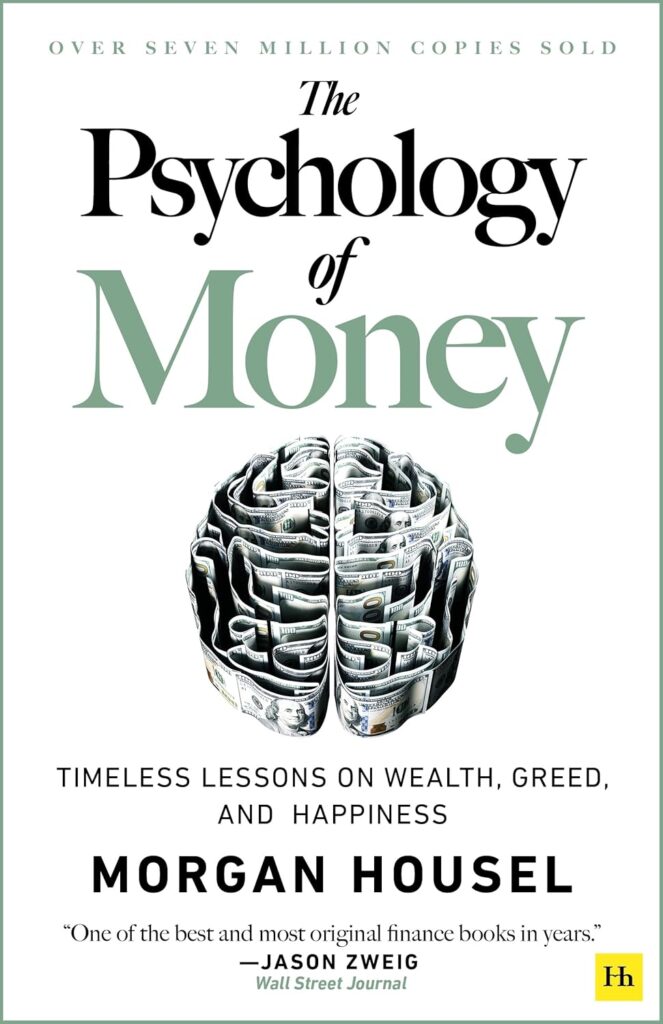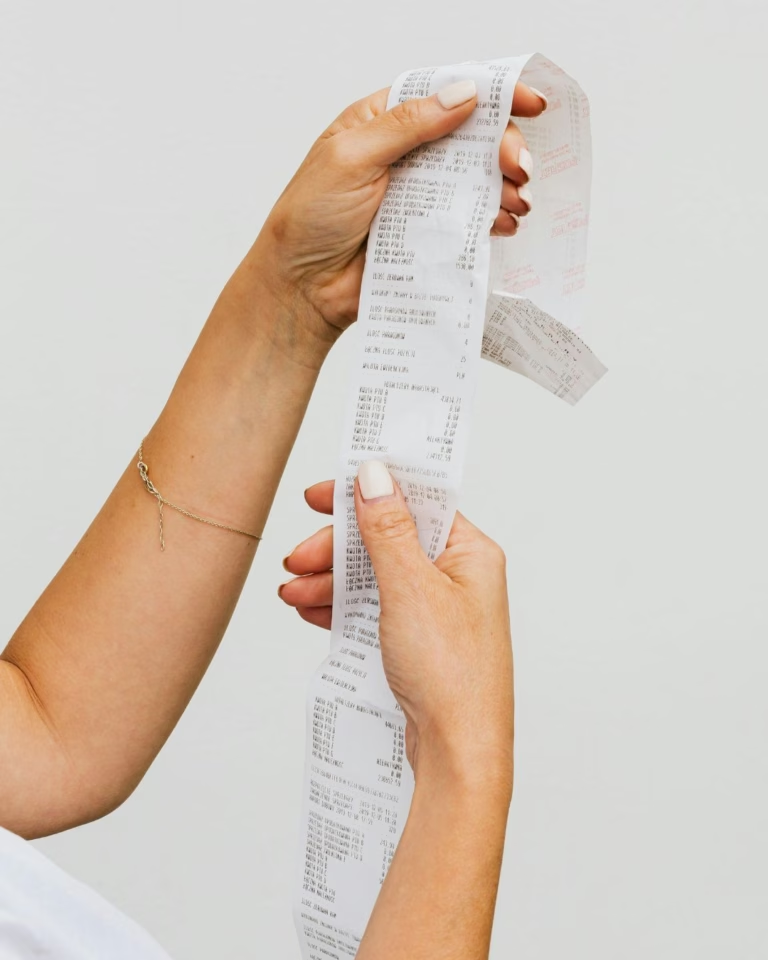29 Biggest Money Mistakes to Avoid (And How to Fix Them Fast!)
This site contains affiliate links, view the disclaimer for more information.
You work hard for your money, but somehow, it always feels like it’s slipping through your fingers. You buy things that seemed like a good idea at the time, but now they’re just taking up space. Your paycheck disappears into bills, impulse purchases, and subscriptions you forgot about. And that dream? The one where you’re traveling the world, buying your dream home, or finally launching that business? It feels further away than ever.
The good news is, it doesn’t have to be this way. Small money mistakes add up, but once you know what to look out for, you can start making changes that actually move you toward the future you want.
In this post, I’m sharing 29 common money mistakes and, more importantly, how to fix them—fast. Because financial freedom isn’t just for “rich” people. It’s for anyone willing to take control, and that starts today.

Welcome to part 7 of 10 in my personal finance blog series, where we dive into how a money saving plan can be your key to successfully transitioning from debt to savings. If you’re just joining us, be sure to check out the first post for a deeper dive into why a money saving plan is so crucial. It’ll lay the foundation for everything we’re discussing moving forward.
29 Biggest Money Mistakes to Avoid
1. Failing to Create a Realistic Budget
Why avoid it?
A budget that isn’t realistic is like a diet that’s too restrictive—you won’t stick to it. If your budget doesn’t account for how you actually live, it’ll feel like a constant struggle, and you might abandon it altogether.
How to fix it?
Evaluate why you’re struggling to stick to your budget and make changes accordingly. Is your budget too tight? Give yourself a little more breathing room. Do you simply need better tracking? A budget tracker or app can keep you accountable. Your budget should work for you, not against you.
2. Dipping Into Your Emergency Fund for Non-Emergencies
Why avoid it?
One of the worst money mistakes is treating your emergency fund like a backup checking account. Think of your emergency fund as a treasure chest at the bottom of the sea—you don’t open it unless there’s a real reason to dive in. Using it for impulse purchases means you won’t have it when you actually need it, like for unexpected medical expenses or car repairs.
How to fix it?
Set up a separate personal savings fund for those “I really want this” purchases. That way, you can buy fun things without guilt while keeping your emergency fund locked away for, well, emergencies.
3. Living Beyond Your Means
Why avoid it?
Many people don’t realize they’re making this money mistake until they’re knee-deep in credit card debt. It’s easy to justify a nice purchase here and there, but if your lifestyle requires more money than you actually have, it’s not sustainable. Monthly payments on luxury items, frequent beauty appointments, or keeping up with home upgrades can quickly snowball into financial stress.
How to fix it?
Before committing to a purchase, ask yourself: Can I afford this comfortably every single month without stress? If the answer is no, reconsider. A budget that supports your goals—not just your wants—is key.
Find Smart Tools to Budget Better, Save More, and Work From Anywhere
Ready to make life (and money management) a little easier? Check out my favorite tools, books, and essentials for budgeting smarter, building real savings, organizing your home office, and thriving in remote work—so you can create the flexible lifestyle you’re working toward.
4. Over-Spending on Non-Essentials
Why avoid it?
Impulse spending can drain your finances before you even realize it. Those daily coffee runs, spontaneous online purchases, and unnecessary subscriptions add up, leaving you wondering where your money went.
How to fix it?
Set a clear budget for fun spending and stick to it. If you want something that’s outside your budget for the month, add it to a wish list and revisit it later. You might find that you don’t even want it anymore!
Clever Fox
Budget Planner
A simple, hands-on budget planner like this one can make it much easier to keep track of personal finances without letting anything slip through the cracks. No more accidental over-spending or expenses sneaking up on you.
5. Racking Up Unnecessary Debt
Why avoid it?
Debt can feel manageable at first, but it has a sneaky way of piling up. Even if you can afford the payments now, unexpected changes—like a job loss or emergency—can make it harder to keep up. Plus, interest adds up fast.
How to fix it?
Only use credit cards or take out loans when necessary. If you’re using a credit card for rewards points, great! Just make sure you can pay it off in full every month.
6. Opting for Monthly Payments or Pay-Over-Time Plans
Why avoid it?
Money mistakes like this one trick you into thinking you can afford more than you actually can. Those “easy” monthly payment plans or pay-over-time options can quickly add up. Before you know it, you’re juggling a dozen recurring charges and barely keeping track.
How to fix it?
Whenever possible, pay in full. If you have to use a payment plan, try to put down as much as possible upfront to reduce your remaining balance. The fewer monthly payments you have, the easier it is to stay on top of your finances.
Don’t forget to pin this!
Make sure to pin this image here and save it to your Pinterest board. That way you can easily come back to this page for 29 of the biggest money mistakes to avoid.
7. Ignoring Financial Education
Why avoid it?
Lacking financial education only limits our financial opportunities and puts us at risk of making even more money mistakes.
How to fix it?
Commit to learning one new thing about money & personal finances a week. Whether it’s a podcast, blog, book, or even a conversation with someone who’s good with money, small steps add up. Your time is special, so pick topics that you’re eager to learn about and will help solve your unique financial challenges. Start with the basics like budgeting, saving, and investing, then explore more advanced topics that align with your financial goals.
8. Failing to Set Clear Financial Goals
Why avoid it?
Clear financial goals guide your spending and saving choices. If you don’t have them, it’s easy for money to disappear—making it harder to reach milestones like buying a home, traveling or retiring comfortably.
How to fix it?
Set SMART (Specific, Measurable, Attainable, Relevant, Time-bound) goals. Instead of saying, “I want to save money,” say, “I’ll save $5,000 in a year by setting aside $100 per week.” If you’re having troubles setting realistic financial goals, here’s 13 ideas to get you started. Having a plan makes success much more likely.
9. Only Paying the Minimum on Your Credit Card
Why avoid it?
Only paying the minimum is a costly money mistake that keeps you stuck in a cycle of growing debt and high interest rates. Plus, it can hurt your credit score, which hinders many financial opportunities like easier loan approvals or accepted rental applications.
How to fix it?
If you can afford to pay more than the minimum, put as much as you can toward your balance each month. Create a plan to tackle your credit card debt aggressively so you pay less toward interest overtime.
10. Living Paycheck to Paycheck Without a Savings Plan
Why avoid it?
If you’re always waiting for your next paycheck just to cover bills, it’s tough to get ahead financially. Without a plan, breaking out of this cycle becomes even harder.
How to fix it?
Start by tracking your expenses and cutting back where you can. Prioritize saving—even a small emergency fund can give you breathing room and help you escape the paycheck-to-paycheck grind. When you’re ready to commit to upgrading your finances, follow the necessary steps to building a solid money-saving plan so you can transition from debt to savings.
11. Spending More as You Earn More
Why avoid it?
Another one of the most common money mistakes is spending more as you earn more. It’s tempting to level up your lifestyle with every raise, but if you always do this then you’ll never actually feel wealthier.
How to fix it?
Instead of increasing your spending, increase your savings. Put raises toward investments, debt payoff, or long-term goals. Your future self will thank you!
12. Avoiding Investing Out of Fear
George Addair
“Everything you’ve ever wanted is on the other side of fear.”
Why avoid it?
Don’t let fear or the feeling of unfamiliarity prevent you from opening the door to unlimited financial opportunities. Many people think investing is only for wealthy or financially savvy people. But that’s not true. Investing is one of the most powerful ways to grow your wealth and take your financial future to the next level. Anyone can do it, including you.
How to fix it?
Start simple by investing (pun intended) in a beginner-friendly book or podcast. There are a multitude of free resources out there to help you get started. Don’t know where to start? Check out Dave Ramsey; he was one of the first financial experts I discovered that got me hooked on the importance of personal finances. Remember, you don’t need to be a stock market expert—just start learning and ease into it.
13. Trying to Keep Up with Others Financially
Why avoid it?
Trying to match someone else’s lifestyle—especially if they’re in a different financial position—is one of the most common money mistakes that can drain your bank account fast.
How to fix it?
Make financial decisions based on your priorities and focus on what truly matters to you. The latest trends aren’t worth the financial stress.
14. Putting Your Savings Last
Why avoid it?
If you only save whatever’s left over at the end of the month, it’s going to be very difficult to see positive financial results. Prioritizing spending over saving means your financial goals take longer to achieve, and you may end up saving very little or nothing at all.
How to fix it?
Avoid this money mistake by treating savings like a bill—non-negotiable. Pay yourself first by setting aside money for savings before spending on non-essentials.
15. Not Setting Spending Rules for Yourself
Why avoid it?
Think about a world without rules—total chaos, right? The same goes for your finances. Without structure and limits, it’s impossible to stay on track toward your financial goals.
How to fix it?
Create 1-3 simple spending rules for you to follow starting this month and set up reminders (like a note on the fridge or bedside table) to help you stay disciplined. For example:
- No online shopping after 9 PM.
- Wait 48 hours before making non-essential purchases.
- Limit eating out to twice a week.
A few rules can go a long way in keeping your spending in check.
16. Relying on One Source of Income
Why avoid it?
Putting all your eggs in one basket is always risky—especially when it comes to income. Companies shut down, employees get laid off, and unexpected circumstances arise. Relying on a single income source is one of the biggest money mistakes that leaves you vulnerable to financial instability.
How to fix it?
Explore additional income streams like investing, starting a side hustle, selling unused items, or turning a hobby into an Etsy shop. There’s plenty of earning potential out there—you just have to tap into it!
How I Turned My Hobby Into a Side Hustle
For years, I dabbled in different side hustles, but nothing felt like the right fit—until I discovered blogging. I wanted something profitable, flexible, and enjoyable, but I had no clue where to start. After weeks of researching blogging courses, I finally found Sophia Lee’s Beginner’s Blogging Bundle, and it changed everything.
This bundle includes two courses: Perfecting Blogging and Perfecting Pinterest. Perfecting Blogging breaks down SEO strategies, Sophia’s step-by-step formula for creating high-quality blogs fast, and the exact strategies she used to grow her site into a six-figure business. Perfecting Pinterest reveals her traffic-driving secrets, time-saving content strategies, and how to maximize Pinterest for rapid blog growth.
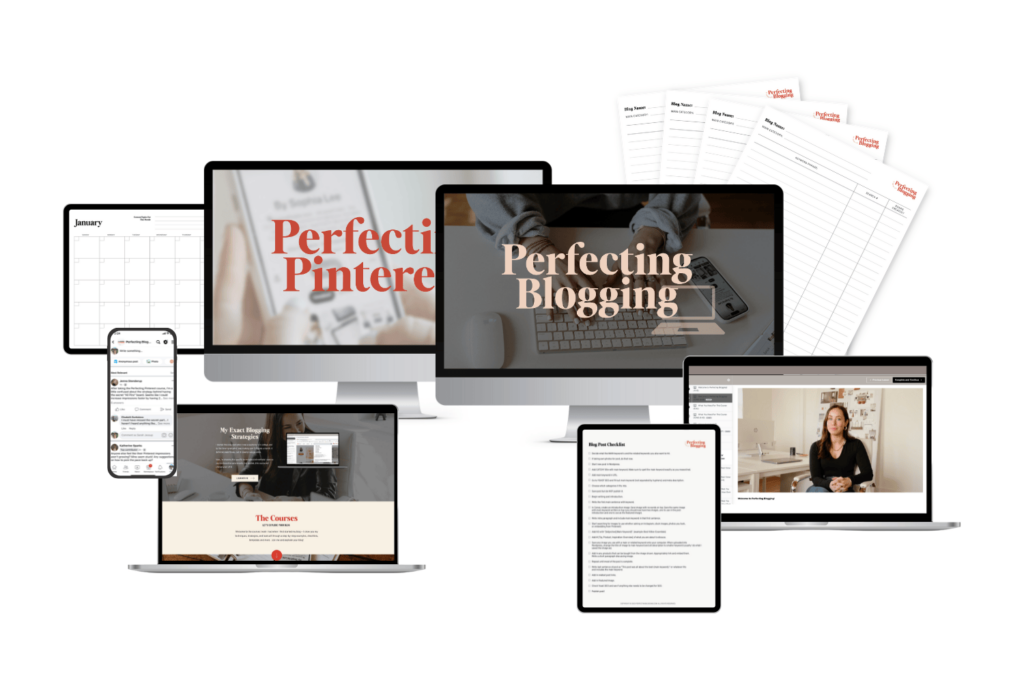
If you’re just starting out or struggling to get traction, this bundle gives you a clear roadmap to success. I can confidently say it made my blogging journey 100x easier, and I know it can do the same for you!
17. Lending Money You Don’t Have
Why avoid it?
It’s generous to help a friend in need, but you can’t give what you don’t have. Lending money you can’t afford to spare is a risky money mistake that could put you in debt, leaving you in a position where you’re the one needing financial help.
How to fix it?
It’s okay to say “no.” Don’t feel guilty if you can’t always help financially. Only lend when you can truly afford to do so without putting yourself at risk.
18. Lending Money to Unreliable Friends or Family
Why avoid it?
Loaning money to someone who isn’t financially responsible is another money mistake that puts you at risk of never getting repaid—or at least not in a timely manner. And what happens if you need that money later?
How to fix it?
Only lend to people you trust to repay you in full and on time. If you choose to help someone who isn’t reliable, do so with the mindset that you may never see that money again.
19. Paying for Subscriptions You Don’t Use
Why avoid it?
Subscriptions are easy, convenient, set it and forget it. But that’s also exactly how they can quietly sneak up on you and begin to make your hard-earned money disappear. That $10 subscription you aren’t using could save you $120 a year. That’s more toward your savings goal (or a free hair or nail appointment if you ask me!).
How to fix it?
Regularly track your subscriptions using a budget tracker like this one. Many services increase prices over time without notice, just like insurance. Review your statements, cancel what you don’t use, and keep an eye on rate increases.
20. Not Negotiating Your Salary or Big Purchases
Why avoid it?
If you’re not negotiating, you’re leaving money on the table. Your salary should keep pace with rising inflation and taxes. And when it comes to big purchases, why should you pay more than the next person for the same item?
How to fix it?
Don’t be afraid to negotiate. Push through a few minutes of awkwardness now and trade it for bigger savings or better pay later.
Chris Voss
Never Split the Difference
Negotiation is a skill anyone can learn, and “Never Split the Difference” by Chris Voss teaches you powerful tactics to ask for more—whether it’s a raise or a better deal on a car.
21. Not Asking Questions
Why avoid it?
Asking questions helps you fully understand what you’re committing to. Many salespeople count on you not asking questions so they can charge higher prices. Plus, mistakes happen—restaurants, medical offices, and service providers often overcharge. If you don’t ask, you could be paying more than necessary.
How to fix it?
Always seek clarity before making financial decisions. Ask as many questions as possible. If you’re unsure what to ask, try:
- “What are the most common questions people ask about this?”
- “Is there anything else I should be aware of before committing?”
Real-Life Examples
- My car insurance randomly increased by $100. One phone call later, I got it reduced back down.
- I caught a billing error on a medical bill, saving myself from overpaying.
- A quick call to compare medical facilities saved me hundreds on an upcoming procedure.
Moral of the story? Ask questions—it pays off.
22. Not Shopping Around
Why avoid it?
Going with the first option you find can cost you big time. Whether it’s a one-time purchase or a recurring bill, failing to compare prices could mean overpaying. Many services, like internet, car insurance or streaming platforms, increase rates over time, and without shopping around, you’ll be stuck paying more than necessary.
How to fix it?
Before making a purchase, ask yourself: Could I find this for a better price elsewhere? If the answer is yes, take some extra time to compare. For recurring expenses, review your options yearly—switching providers can lead to major savings. This could be switching from Spotify to Apple Music, from Apple to Android, from Geico to State Farm, or from AT&T to Spectrum.
23. Blowing Your Entire Savings on One Purchase
Why avoid it?
When you spend your entire savings on one purchase, you’re left with no extra money to cover you when you really need it. Think of flat tires, urgent care visits, a dead car battery. How are you going to afford those expenses if you already spent all your money on something else? Without a financial cushion, you’re left scrambling.
How to fix it?
I was once taught, If you can’t afford to buy it twice, you can’t afford it. While this doesn’t apply to everything (like houses), it’s a solid guideline for other big purchases. Set a baseline savings amount (e.g., $15,000) and only dip into your savings if it won’t take you below that threshold.
24. Spending Money That Isn’t Yours Yet
Why avoid it?
Let’s say you get a $10,000 sign-on bonus for your new job, but it comes with a clause: If you leave the company within two years, you have to pay it back. Spending it immediately could land you in serious financial trouble if things don’t go as planned and you end up leaving the company before the two year mark.
How to fix it?
Only spend money you actually have, not income you’re expecting or hoping for. Play it safe until the funds are 100% yours.
25. Paying Unnecessary Fees Just Because You “Have the Money”
Why avoid it?
Money mistakes like paying ATM fees, credit card surcharges, and convenience fees may seem small, but overtime they add up. That’s money going into someone else’s pocket instead of yours.
How to fix it?
Avoid fees whenever possible:
- Use in-network ATMs to avoid withdrawal fees.
- Use cash at restaurants to skip credit card fees.
- Pay rent through your bank account instead of a credit card.
26. Buying Things You Don’t Truly Value
Why avoid it?
Think about how many things are in your house that you don’t really use, or clothes you’ve worn once and never again, or impulse buys that now just collect dust. Sometimes we rush into buying something without really asking ourselves if it’s something we’ll value. And there goes our money along with it. Avoiding these types of money mistakes can save you much money (and likely, space in your home!).
How to fix it?
Be intentional with your spending. Before buying, ask yourself: Will this truly add value to my life?
27. Forgetting to Factor in Future Big Purchases
Why avoid it?
Spending without considering long-term goals can leave you unprepared. If you want to buy a car in six months but don’t plan your budget around that goal, you might find yourself short when it’s time to make the purchase.
How to fix it?
Set clear financial goals. Identify major upcoming expenses, create a savings plan, then shape your current spending around it.
28. Making Financial Decisions Based on Planned (Not Actual) Income
Why avoid it?
If you’re banking on a future raise or new job to afford a bigger apartment, you’re taking a major risk. If that raise doesn’t come through, you’re stuck in a financial hole.
How to fix it?
Make decisions based on the income you currently have. If a raise happens? Great—that’s extra savings or an upgrade down the road.
29. Poor Money Mindset
Why avoid it?
Having a poor money mindset is one of the biggest money mistakes that many people make. It’s easy to fall into the trap of, “Well, I only live once so I might as well spend it.” But without discipline, you’re limiting your financial potential. That doesn’t mean you can’t enjoy life—it just means balance is key.
How to fix it?
Find a healthy middle ground. Budget in fun expenses so you can enjoy life while saving for the future.
Morgan Housel
The Psychology of Money
Your mindset around money plays a huge role in financial success. “The Psychology of Money” is an eye-opening read that helps you think differently about saving and investing.
Conclusion
Money mistakes happen, but they don’t have to define your future. With each small change you make today, you are setting yourself up for big financial wins in the future. Which one of these money mistakes are you working on fixing right now? Drop it in the comments!
Next up in the blog series
In Part 8 of this blog series, we’ll be going more in-depth on how to successfully build an emergency fund. Click to read now!
